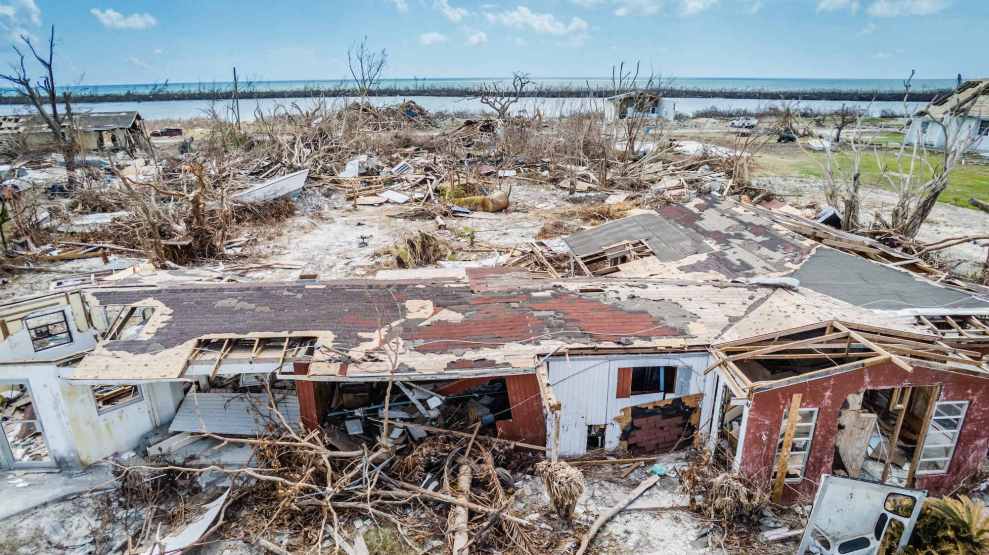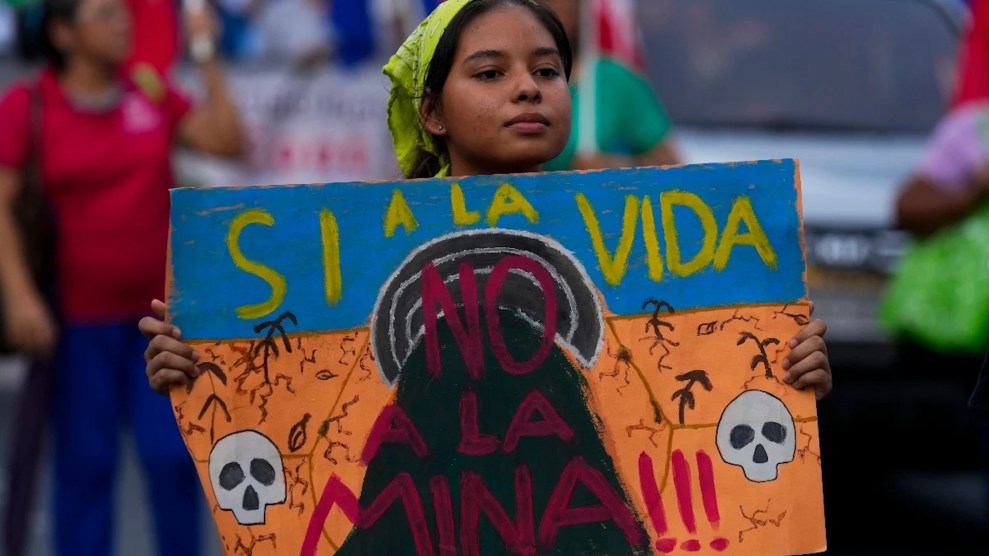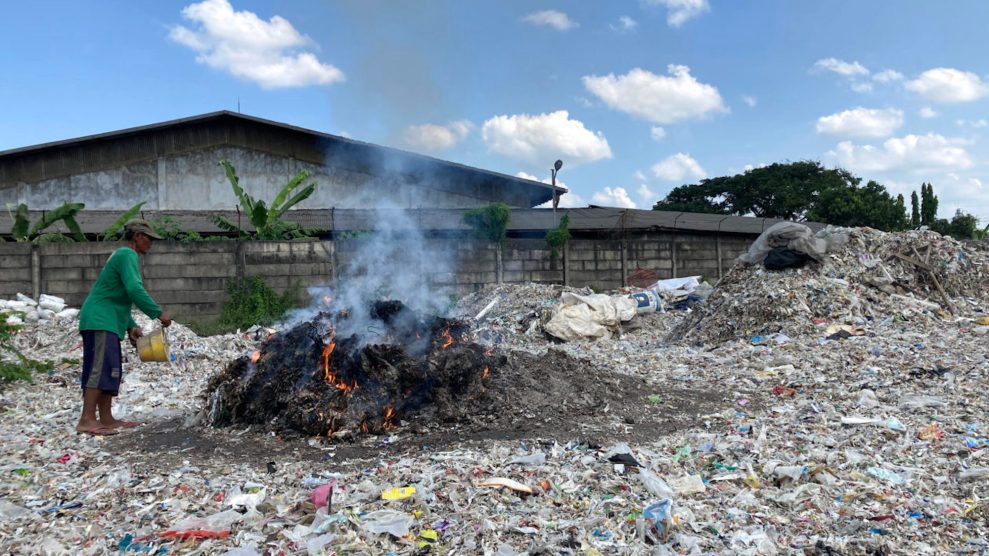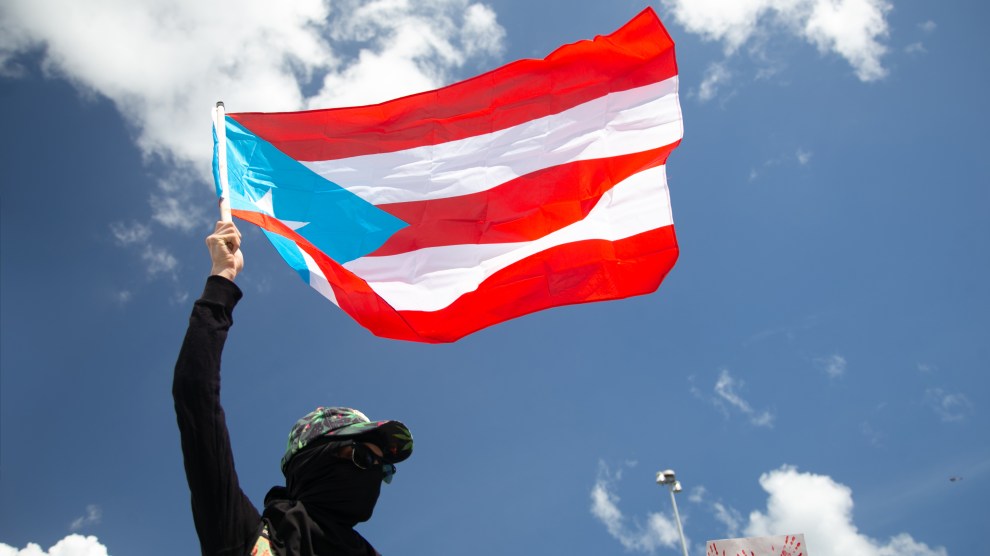
A destroyed home in the Bahamas after Hurricane Dorian.Roger Edelman/ZUMA
This story was originally published by Inside Climate News and is reproduced here as part of the Climate Desk collaboration.
A new UN report sheds light on how climate change is driving some climate-vulnerable nations deeper into debt, locking them into unsustainable cycles of economic crisis and hampering their governments’ ability to provide basic services to citizens.
Focusing on the Bahamas, the report looks at how natural disasters impact public debt and the realization of Bahamians’ human rights.
Attiya Waris, the report’s author and a UN independent expert on foreign debt, found that the effect of five major hurricanes since 2012 has forced the country of about 400,000 people to take on billions of dollars in debt for reconstruction while imperiling its tourism-dependent economy. As a result, the Bahamian government has been less able to spend on programs like food assistance, business loans and unemployment benefits—the need for which increases after climate-induced natural disasters.
In 2019, Hurricane Dorian, the most recent major hurricane to hit the Caribbean nation of about 700 islands, caused a staggering $3.4 billion in damage, equal to roughly one-fourth of the country’s GDP. The category five storm killed upwards of 70 people and ripped apart homes and businesses, affecting an additional 30,000 people.
In the aftermath of the storm, the country’s then-finance minister K. Peter Turnquest announced that the government would cut taxes, rather than raise them to fund the recovery, given the hurricane’s deleterious impact on the economy and the need to help business restart. To fund the clean up, temporary shelters, food assistance and other expenses, the government was forced to borrow roughly $500 million, he said.
Dorian was the latest in a chain of expensive hurricanes to hit the Bahamas, including Joaquin in 2015, costing $105 million; Matthew in 2016, costing $438.6 million; and Irma in 2017, costing $118 million.
In her analysis, Waris found the country had barely finished paying off debt incurred after one of the hurricanes when another hit, compounding its debt burden. The Bahamas’ debt service costs alone were about $989.9 million for the last quarter of 2022, almost double the $525.5 million incurred during the first quarter of that year. “Forget thriving, the economy under those circumstances is trying to survive,” Waris said.
Because of climate change, the frequency and intensity of hurricanes and sea level rise are expected to increase. As a result, places like the Bahamas will be hit with increased flooding and coastal erosion, decreased seabed productivity and the intrusion of saltwater into groundwater sources. Sea level around the Bahamas has already risen about a foot over the past century.
In turn, that damage to nature has, and will continue to, directly affect the natural-resource dependent Bahamian tourism industry, which accounts for over 50 percent of the country’s GDP and employs over half of its workforce.
Waris said the Bahamas is emblematic of other climate-vulnerable nations that are, or will be, forced to rebuild repeatedly after more frequently occurring floods, drought, storms and other climate-induced natural disasters. She called on the international community to give more concessional (below market rate) loans, cancel debt related to climate-induced disasters and make contributions to the Loss and Damages Fund, which began operating in November under the UN Framework Convention on Climate Change to assist climate-vulnerable nations.
“These countries have often contributed the least to the problem of climate change,” Waris said.
The Bahamas contributes less than 0.01 percent of global greenhouse gas emissions and has some of the lowest per capita emissions worldwide.
Waris, who also teaches law at the University of Nairobi in Kenya, visited the Bahamas in the spring of 2022, touring towns still reeling from Hurricane Dorian where she saw people living in temporary shelters intended only for a few months’ usage.
Her report also touched on the complex nature of the government’s finances in the context of addressing climate-related disasters: international financial institutions and investigative reports have raised concerns about the Bahamas acting as a haven for money laundering as well as the government’s reluctance to impose greater corporate, inheritance and capital gains taxes.
Waris called on the Bahamian government to increase its efforts to prevent illicit financial flows. She’s also pushed for a global tax body to address that and other issues, which she said are directly related to climate financing and the realization of human rights.
Waris presented the report to the UN Human Rights Council on March 6.















